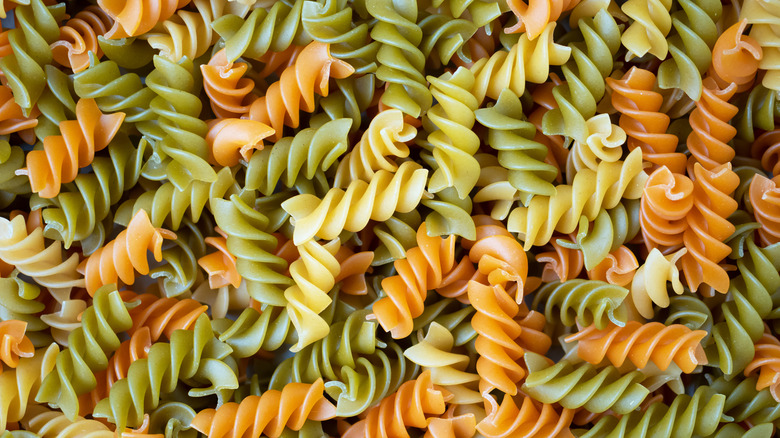Potato Chips May Actually Be Healthier Than Pasta, New Data Says
Ramen is accessible comfort food. It's also rich in carbs, which Harvard's The Nutrition Source notes the human body needs to live and function. If those were all the criteria that mattered, ramen would be not only popular but also something to eat more of, whether it's instant or from a nice restaurant. However, scientists at the Friedman School of Nutrition Science and Policy at Tufts University have been spending a lot of time contemplating exactly how to determine the healthfulness of various foods, according to Tufts Now. One of the observations they made is that the existing systems by which foods were judged healthy or not tend to rely on individual criteria (for example, macronutrient composition), but don't necessarily take into account the bigger picture. That might include such other criteria as the presence of additives, how processed a food is, and the degree to which individual ingredients might be harmful.
Accordingly, they set out to develop a uniform food-healthiness index system based on all the factors nutrition experts deem relevant in evaluating healthfulness. The end result was the Food Compass, an algorithm that utilizes all these elements to assign individual foods a score of somewhere between 1 and 100. Foods like spinach, broccoli, and kimchi score 100, which is the highest score. At the other end of the spectrum, we have pure sugar. Oh yeah, and ramen. Both scored 1. Pasta didn't fare quite as badly as ramen, but not nearly as well as potato chips. Seriously. Here's why.
Are potato chips actually that healthy?
Tufts Now reports that the team of scientists at Tufts University who developed the Food Compass have some news for those who love quick, convenient noodles: "Sorry, instant ramen fans—instant noodles are one of the lowest-scoring choices, right down there with flavored ice pops (1) and pure sugar (1)." They note that ramen is "basically nothing but refined grains and sodium, ultra-processed with tons of additives, with barely any fiber or micronutrients." Plain cooked pasta fared only slightly better – the Food Compass gave it 9 points, presumably because when you take away the salt and other additives and the extra processing that makes pasta what it is, you're left with heavily processed refined grains and little else in the way of micronutrients, per Healthline.
Perhaps surprisingly, potato chips, in their various russet iterations (baked, kettle-cooked, salted, plain, etc.) received an average score of 52 — ranking them closer to spinach than to ramen, per Tufts Now. Sweet potato chips specifically scored a 68, as they have more fiber and micronutrients than regular potato chips. Of course, even a 68 does not mean sweet potato chips are an affirmatively healthy choice. For Food Compass to encourage the eating of a particular food, its score must be over 70. Anything with a score from 31 to 69, which covers all manner of potato chip, including those made from sweet potato, is "to be consumed in moderation." As for foods scoring below 31, like pasta and ramen? Best to avoid if you can.

